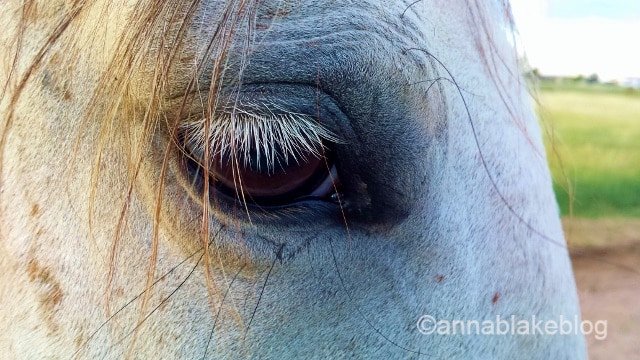 Can you tell the difference between personality, who a horse is, and behavior, what a horse does?
Can you tell the difference between personality, who a horse is, and behavior, what a horse does?
With people it can be a bit easier because we are used to separating the two. We’re taught to “hate the sin and love the sinner.” Most of us know someone who is kind and funny, but a hot mess when they’re drunk. This is progress from generalized beliefs about groups resulting in racism, sexism and all the other “isms”; better than grouping people together without concern for who they are as individuals.
Horses are honest animals. It’s a rare and crazy thing that a prey animal should volunteer to partner with a predator, but they do. When watching foals play, they are curious, tentative, smart, and agile. They are born ready to respond to reward and they are easily frightened. We have a vote in what happens next.
I know a horsewoman who prides herself on being good with horses. She owns a small herd and tells me, over time, that each one of the horses is hot. It’s just who they are. There are young horses, old horses, and several breeds, but each of them has behavioral problems that look nearly identical. Did I mention her hands are brutal?
When they don’t listen at the walk, she sends them to the trot, and when that comes apart, she pushes them to the canter. She just rides them through it. She runs them fast and hard to get the energy out of them and she is a brave rider. Eventually they become exhausted and give in. Lots of us were trained to do it this way and it even works to a small degree for some horses. But for others, it accelerates to hysteria and becomes a chronic pattern. It’s how an elder horse can still be dangerous. And I’ll say, misunderstood. Is he really hot or honestly fearful of the pain and tension felt from his rider?
Historically women were judged too high-strung and emotional for many jobs. We were excused from important positions because we were inadequate by virtue of our sex. We might as well have been name-called Arabians, for all the false assumptions that were made.
In the end, horses are some combination of DNA, accident of birth, and experience. We can’t change the past for them, but we can improve their experience. We can reshape their future.
This is where recognizing anxiety becomes important. When you see a horse with wild eyes, a stiff neck, and a tense tap-dance of hooves, it’s easy to recognize the short list of negative behaviors. Is he mad or aggressive? Is he hot and crazy? Does he need to be exhausted for his brain to kick in? Or does he have some sort of plan to personally humiliate you, or ruin your breeches because they’re expensive, or test you for some random reason that he made up when you didn’t give him a carrot when you haltered him. And who is it sounding unbalanced now?
The foundation of dressage says that a horse should be relaxed. We don’t do it to please the judge, we do it for the good of the horse. It should be obvious to a rider that a horse can’t learn if he’s afraid. Or more truthfully, can’t learn anything positive. He can learn humans are callous and cruel leaders. We can train him to know we have no compassion.
There is one other option. Instead of running him into the ground or psychoanalyzing him, how about helping him relax? Instead of pushing him to distrust you at even faster gaits, how about walking and giving him enough rein to breathe. It isn’t as dramatic. It takes more skill and patience than bravado. And you have to listen to the inside of your horse instead of being distracted by exterior behavior. First you have to remember who he is and then you have to remind him. It’s what a positive leader does.
Because even if you can ride through the behavior, anxiety is a killer. Anxiety is the base ingredient in your horse’s overall well-being and has a direct connection to his health, happiness, and long-term soundness and ride-ability.
Here is the physical part: a horse’s adrenal glands are located in front of the kidneys in the lower back. It’s their job to manage stress by producing the anti-inflammatory hormone cortisol, as well as the hormone adrenaline, when the fight-or-flight response is activated.
If anxiety and stress become a habit, the adrenal glands become over-worked, causing adrenal fatigue or burnout. Horses struggling with adrenal fatigue show symptoms that can seem a bit bi-polar: they are excitable but with little stamina, meaning short bursts of energy in between crashes. They can be unpredictable, often having complete meltdowns over seemingly little things.
Chronically anxious horses have a high rate of stomach ulcers and colic. It’s also proven that stress affects the immune system, so these horses have a harder time fighting off illness, and are more likely to suffer more severe reactions to insect bites, parasites, and vaccinations.
Do you still want to screw up your courage and dominate him through his fit? Statistics also tell us that a huge number of rescue horses are given up because of behavioral problems. How many of those horses could be good partners if we had dealt with the real problem instead of fighting the symptoms? When will we finally learn to listen and not take his clear message as an insult to our egos? And even if you don’t want to do better for your horse, how is this level of stress working of you?
Breathe. Give peace a chance. Sing it at the walk.
Anna Blake, Infinity Farm.
You need to be a member of Barnmice Equestrian Social Community to add comments!
Join Barnmice Equestrian Social Community